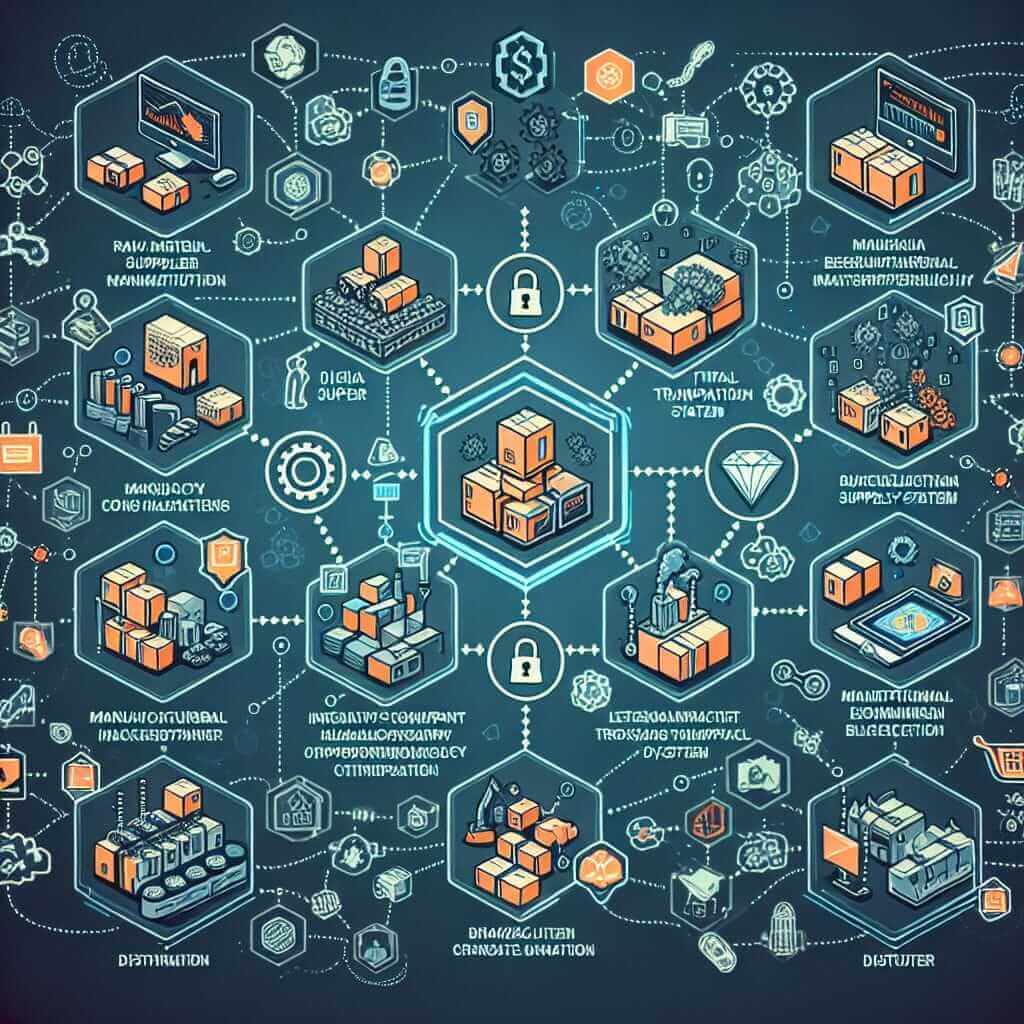The IELTS Reading test is designed to assess a wide range of reading skills, including your ability to understand the main ideas, details, inferences, and implied meanings; to recognize the writer’s opinions, attitudes, and purpose; and to follow the development of an argument. One topic that has gained traction in recent IELTS exams and has a high likelihood of reappearing due to its growing relevance and complexity is “How is blockchain technology being used in supply chains?”
Nội dung bài viết
Blockchain technology has revolutionized various industries, including supply chain management. With the increasing interest in how blockchain is transforming supply chains, it’s crucial to be prepared to encounter reading passages on this subject in the IELTS exam.
Main Content
IELTS Reading Passage on Blockchain in Supply Chains
Passage Type: Medium Text
Blockchain technology is continually transforming supply chain management. By providing an immutable and decentralized ledger, it enhances transparency, traceability, and efficiency.
Blockchain offers significant benefits for supply chains. First and foremost, it provides complete transparency through a distributed ledger, allowing all parties in the supply chain to access and verify records. This transparency minimizes fraud and errors and enhances trust among participants.
Furthermore, blockchain improves traceability. In traditional supply chains, tracking products from origin to destination can be challenging. However, blockchain allows for real-time tracking of products, making it easier to identify and rectify issues such as counterfeiting or contamination in the food industry.
![]()
Another crucial benefit is efficiency improvement. Blockchain eliminates intermediaries and automates processes through smart contracts. These contracts self-execute when predefined conditions are met, which reduces administrative costs and speeds up transactions.
Various industries are adopting blockchain to transform their supply chains. For instance, the food industry uses blockchain to trace the origin of products, ensuring safety and quality. Similarly, the automotive industry leverages blockchain for parts tracking to prevent counterfeit components.
Despite its benefits, the integration of blockchain in supply chains faces challenges. High implementation costs, technological complexity, and the need for regulatory frameworks are significant obstacles. Nevertheless, as technology advances and the benefits become more evident, more companies are likely to adopt blockchain in their supply chains.
Questions
Multiple Choice
-
What is the primary benefit of blockchain technology in supply chains?
A. Reducing transportation costs
B. Providing complete transparency
C. Increasing the speed of delivery
D. Enhancing customer satisfaction -
How does blockchain improve traceability in supply chains?
A. By reducing the number of intermediaries
B. Through the use of smart contracts
C. By allowing real-time tracking of products
D. By providing regulatory frameworks
True/False/Not Given
-
Blockchain technology allows for the elimination of all intermediaries in supply chains.
True / False / Not Given -
The automotive industry uses blockchain to improve parts tracking.
True / False / Not Given -
The cost of implementing blockchain technology in supply chains is negligible.
True / False / Not Given
Matching Information
-
Match the following industries with their use of blockchain technology:
a. Food industry
b. Automotive industryi. Ensuring safety and quality of products
ii. Preventing counterfeit components
Answer Keys
-
B
- Explanation: The passage states that blockchain provides complete transparency through a distributed ledger.
-
C
- Explanation: The text mentions that blockchain allows for real-time tracking of products, improving traceability.
-
False
- Explanation: The passage mentions that blockchain reduces the number of intermediaries but does not eliminate all of them.
-
True
- Explanation: The automotive industry leverages blockchain for parts tracking.
-
False
- Explanation: The passage mentions that high implementation costs are a challenge, indicating that the cost is not negligible.
-
- a-i
Explanation: The food industry uses blockchain to trace the origin of products, ensuring their safety and quality. - b-ii
Explanation: The automotive industry uses blockchain to prevent counterfeit components.
- a-i
Common Mistakes to Avoid
- Misreading the text: Pay attention to every detail in the passage to avoid errors in comprehension.
- Overlooking keywords: Keywords in the questions often match or resemble those in the text. Focus on these to locate answers accurately.
- Assuming information: Do not assume information that is not explicitly presented in the passage. Stick strictly to the content provided.
Vocabulary
-
Immutable
- Type: Adjective
- Pronunciation: /ɪˈmjuːtəbl/
- Meaning: Unchanging over time or unable to be changed.
- Example: An immutable record of each transaction is stored on the blockchain.
-
Traceability
- Type: Noun
- Pronunciation: /ˌtreɪsəˈbɪlɪti/
- Meaning: The ability to track something.
- Example: The traceability of food products improves safety and quality control.
Grammar Focus
Use of Passive Voice
- Structure: [subject] + [form of to be] + [past participle]
- Example: “Blockchain is being used to improve traceability.”
- Explanation: Passive voice is often used in academic writing to emphasize the action or the result rather than the doer.
Conclusion
For a high score in the IELTS Reading test, it is crucial to develop skills in identifying and understanding complex topics like blockchain technology in supply chains. By practicing with passages on contemporary issues and honing your comprehension skills, you can navigate through difficult texts with ease and accuracy.
